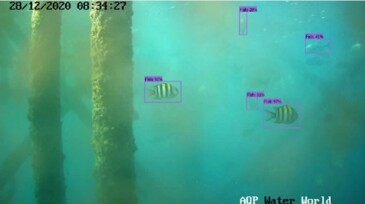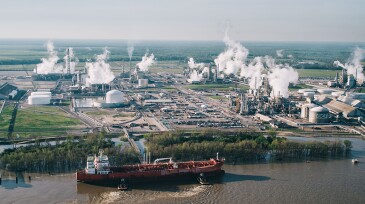HSE & Sustainability
The newly named MTS brings together the full methane ecosystem, end to end—connecting technology, data, operations, and assurance across upstream, midstream, and beyond.
Monitoring on the ground is helping the industry shift from best estimates to hard data so it can bring the true emissions profile into focus.
Ongoing seismicity concerns and orphan well risks are pushing operators and regulators to explore alternatives for managing produced water.
-
Risk is a common thread that runs throughout all engineering disciplines. This course aims to present how to understand and identify hazards, analyze risk, and understand the importance of a comprehensive management system.
-
Recently published research suggests that carbon dioxide stored underground will stay there for millions of years.
-
Because diversity of aquatic animals is an indicator of safe and environmentally friendly operations, a pilot system has been launched that uses an underwater camera and artificial intelligence to observe aquatic animals around a platform.
-
The funding is for 33 research and development projects which will tackle the technical challenges of capturing CO2.
-
Harish Krishnamoorthy, assistant professor of electrical and computer engineering at the University of Houston, has been selected by the National Academies’ Gulf Research Program as an early-career research fellow in the Offshore Energy Safety track.
-
Operator Horisont Energi finds a new partner in Spain’s Fertiberia, while Equinor and Vår seek alternatives.
-
The authors of this paper show the migration of a CO2 plume within a depleted carbonate reservoir and the expected effects of CO2 saturation and pressure buildups during injection on time lapse 4D seismic for conformance monitoring.
-
Carbon capture and storage, with the potential for usage, will be crucial if the world is to prevent global warming. While Norway has been injecting captured CO2 in saline aquifers since the mid-1990s, there has been no attempt, and no plans exist, in Europe to use CO2 for EOR. Why not?
-
At the center of a rush to build carbon storage is the state of Louisiana, where the number of applications to build long-term storage is equal to half the sites operating globally.
-
The recent Permian Basin earthquakes in Texas are keeping producers, regulators, and service providers busy in their quest to reduce the intensity and frequency of the induced seismic events.











![JPT_2023-02_GuestEd_Essential-Features-of-the-CO2-EOR-Process[1].jpg](https://assets.spe.org/dims4/default/c0ca44d/2147483647/strip/true/crop/879x491+0+18/resize/365x204!/quality/90/?url=http%3A%2F%2Fspe-brightspot.s3.us-east-2.amazonaws.com%2Fdf%2Fbd%2F1d2a3a144d61b40dbfee45355579%2Fjpt-2023-02-guested-essential-features-of-the-co2-eor-process1.jpg)

